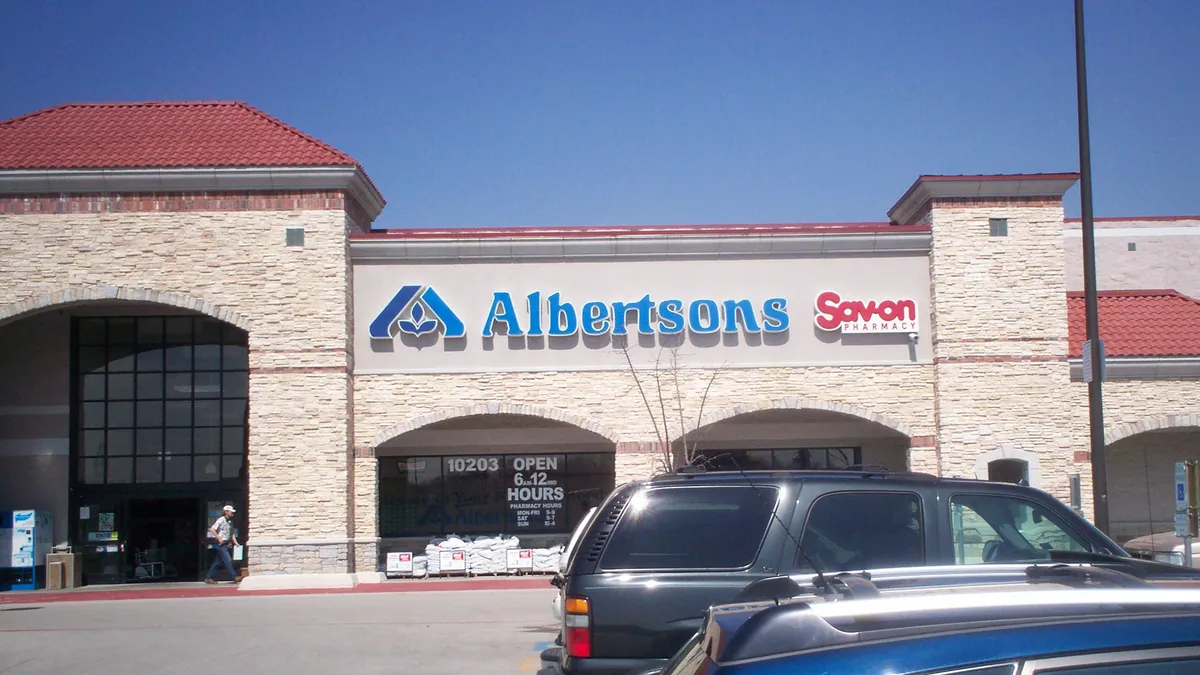Dive Brief:
- Albertsons’ push to acquire Whole Foods and Sprouts Farmers Market isn’t going well, with both takeover bids likely to fail, sources told the New York Post.
- The sources said Albertsons has met stiff resistance from Whole Foods, which has been under increasing pressure from activist investors to explore a sale. Sprouts, meanwhile, is willing to sell, but the two sides can’t come to terms.
- Activist investor Jana Partners, which owns a 9% stake in Whole Foods, could have a tough time pressuring Whole Foods to sell without more pressure from activist funds and shareholders, a source told the Post.
Dive Insight:
Albertsons is currently the second-largest retailer in the country and the fastest-growing one thanks to an aggressive acquisition strategy. But its faltering bids for Whole Foods and Sprouts may reveal the limits to its ambitions.
During the past five years, the retail chain, which was bought by private equity firm Cerberus Capital Management in 2006, has gone from just 200 stores and $4 billion in sales to more than 2,300 stores and $60 billion in annual sales. The company’s $9 billion acquisition of Safeway two years ago shot it through the ranks, and supplemental acquisitions of United Supermarkets, Tom Thumb, and more than two dozen stores belonging to Haggen, have further boosted its industry footprint.
As a conventional retailer, Albertsons has felt the pinch of deflation as well as competitive pressures from alternative formats. The company wants to expand into the fast-growing natural and organic arena, but its recent growth has put it deeply in debt — as much as $10 billion, according to sources interviewed by Food Dive. Any acquisition would increase that debt considerably.
Cerberus Capital is likely willing to shoulder all this debt if it gets the company closer to a public offering. Going public would open up new growth opportunities for the retailer and allow it to pay down its debt. But many in the industry question whether a highly-leveraged company should continue to target big buys. Analysts also wonder if Albertsons would be a good manager in the natural and organic space, particularly with Whole Foods, which seems to currently require a delicate balance of investment and cost-cutting.
Albertsons does have a reputation for cost cutting and efficient management, which could benefit an embattled Whole Foods to some degree. But the Austin, Texas-based retailer was never going to sell right away unless it had to, and the likelihood of a quick sale may be dwindling unless more activist investors join Jana Partners. Long term, though, the company could still be in trouble if its turnaround plan doesn’t produce results.
Sprouts, meanwhile, which racked up $4 billion in sales last year and is on track to increase its footprint to nearly 300 stores this year, could see improved purchasing power and operating efficiency under Albertsons. Analysts have estimated the combined companies could save as much as $100 million on purchasing, private label manufacturing and other capabilities. It appears the growth potential that made Sprouts attractive in the first place has now put the retailer out of reach for Albertsons. But given Albertsons appetite for making deals, the retail giant will likely remain on the lookout for other targets if the Whole Foods and Sprouts deals aren't completed.









